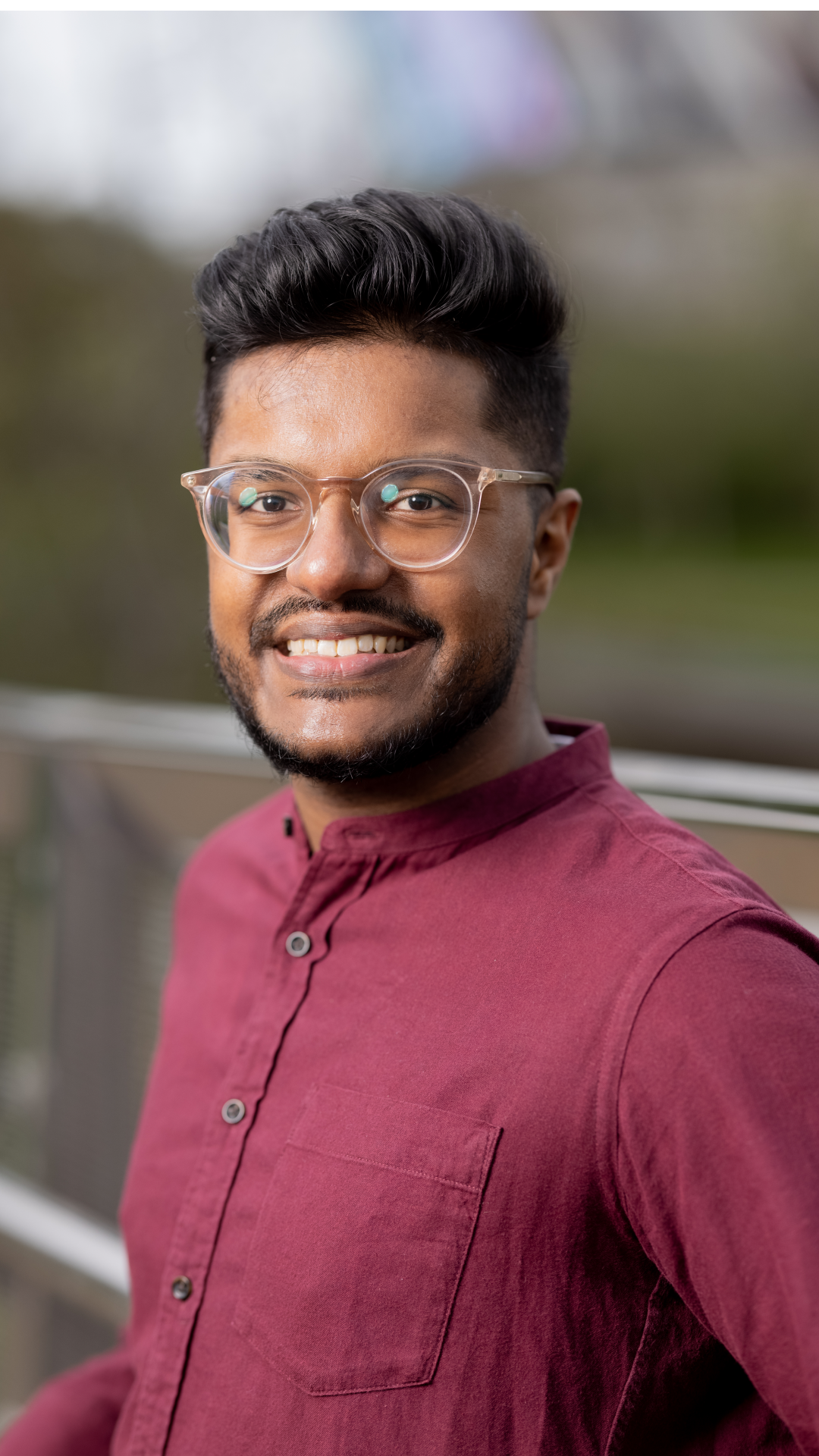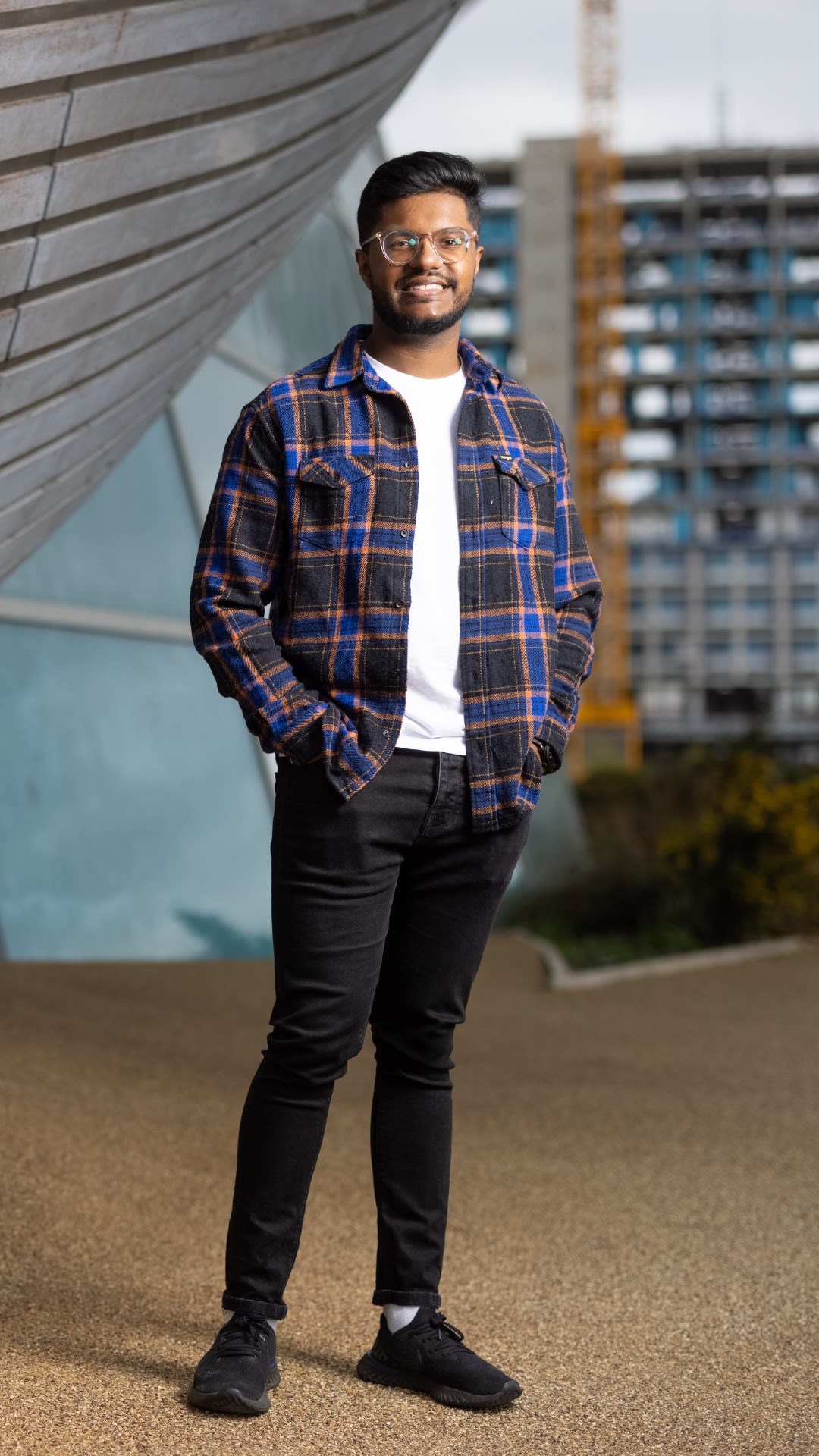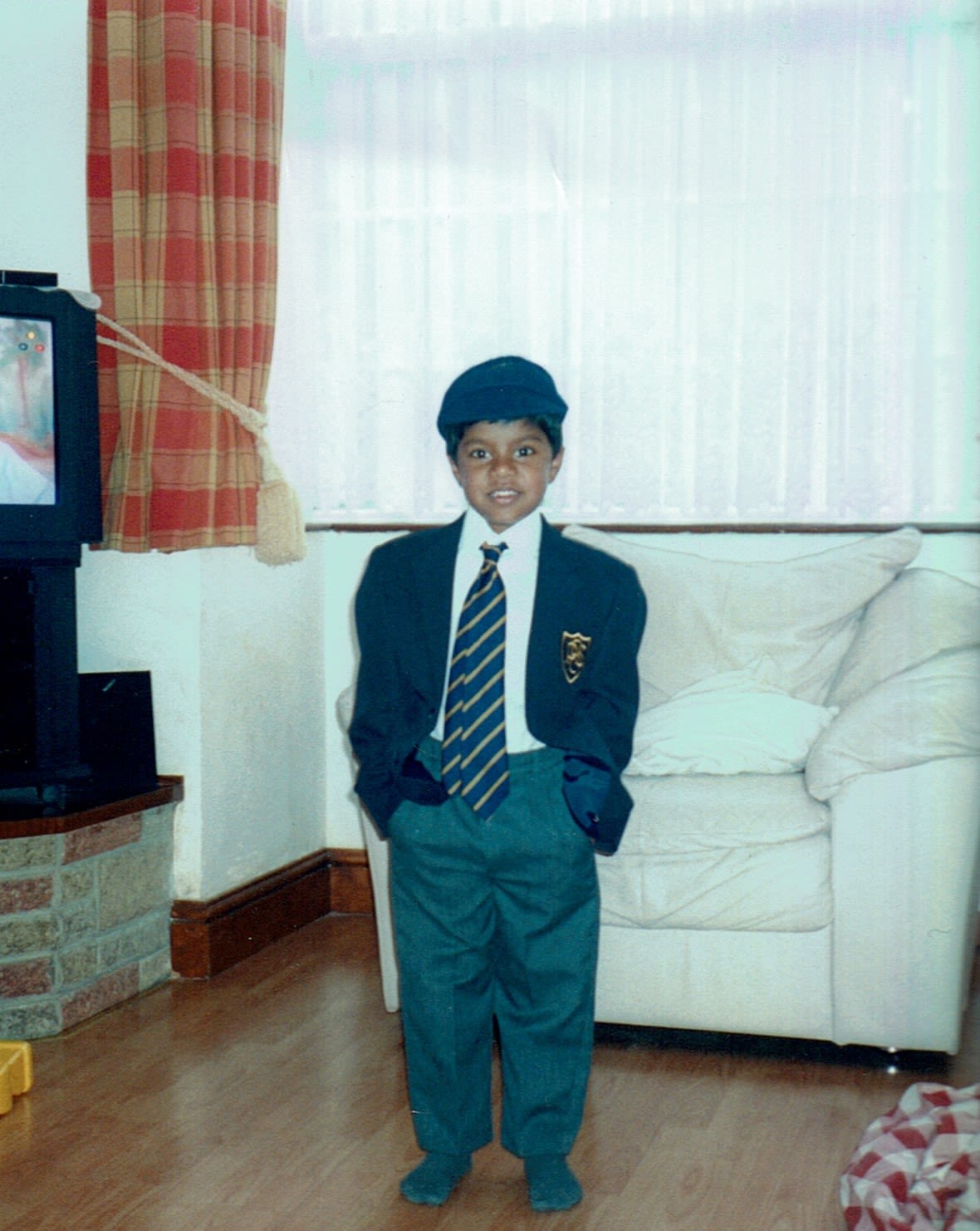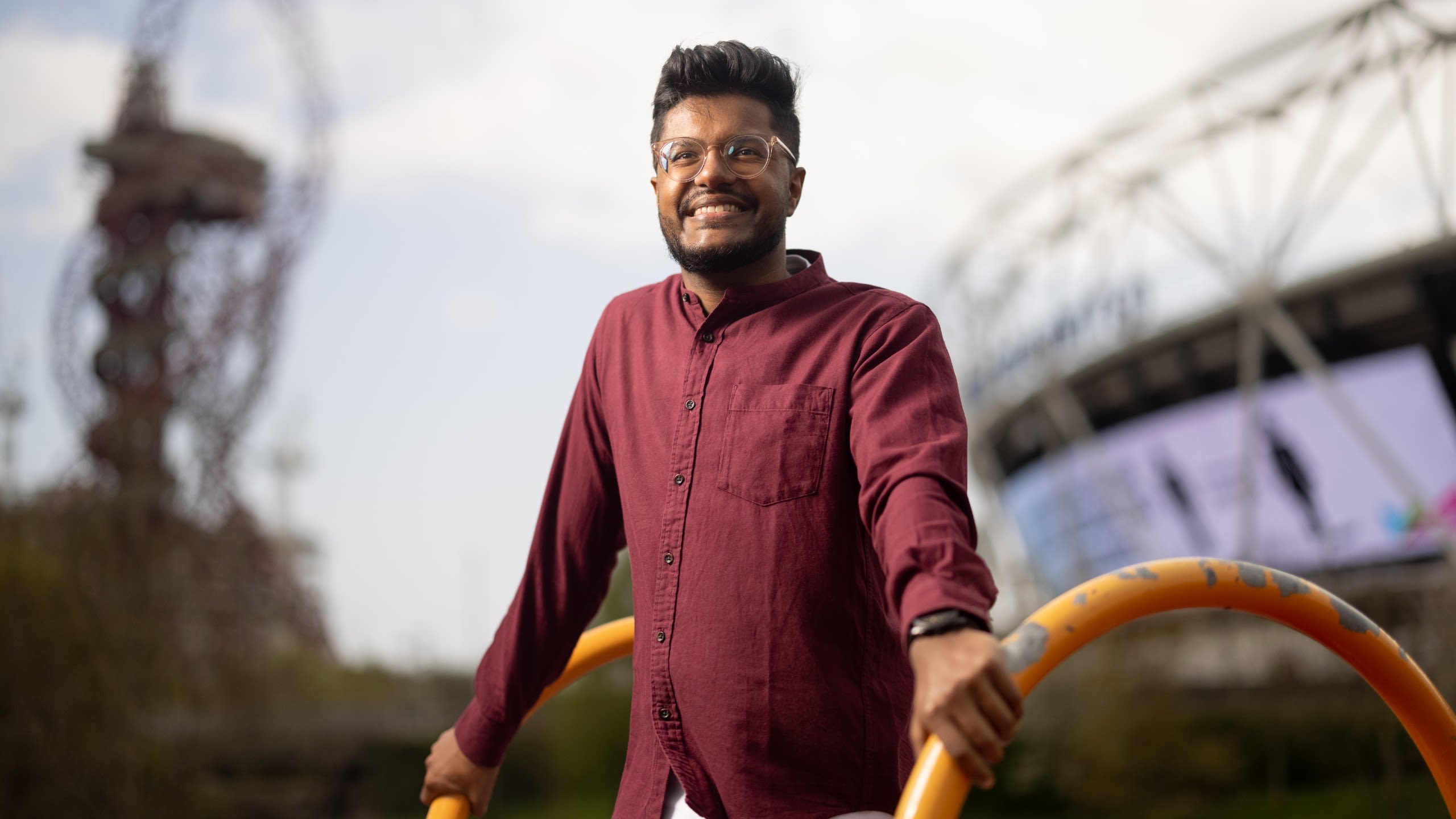
"Representing my culture at Imperial is something I’m really proud of."
Rokshan Easwarathasan, Undergraduate, Faculty of Medicine
Studying during COVID-19
I know it sounds stereotypical, but I chose to study medicine because I want to help others in need. Combining continuous scientific learning with working with such a diverse range of people is what really attracted me to the field. Being on placements during COVID-19 has been tough, seeing the number of infections and the figures so high and the state patients have been getting in when they can’t breathe for themselves. These are people who just one week ago were unaffected. Whilst working in healthcare, dealing with death might be considered part of the job, but in such huge numbers, there’s a large psychological impact.
Being on placements during COVID-19 has been tough, seeing the numbers of infections and the figures so high and the state patients have been getting in when they can’t breathe for themselves.
But the pandemic has also opened up a lot of learning opportunities. Doctors have had so much on their plate and we medical students have tried to step up where we can. I feel privileged to have been able to work as a vaccinator and to have been on the wards during the pandemic. I’ve found it so rewarding to be able to contribute in some way.
Growing up
I was never ashamed of my background at school, but there weren’t many of us and I wouldn’t always be outgoing about being Tamil and from Sri Lanka. I just knew I was different.
My parents are both immigrants from Sri Lanka, but I was born and brought up in East London. My surname has thirteen letters in it – lots of Sri Lankan people have long names – and teachers have always struggled with it or avoided it full stop. Things like that make you realise you’re different. Even my first name, some people have difficulty with it. But nowadays people want to learn how to pronounce your name properly, even more so at Imperial where there are people from so many cultures. Everyone’s welcoming.
My surname has thirteen letters in it – lots of Sri Lankan people have long names – and teachers have always struggled with it or avoided it full stop.
Secondary school in Essex is where I really grew up. Essex is not as ethnically diverse as East London, which was quite a culture shock for me. It makes you feel like a little bit of an imposter at times, especially when things are so different at home. That’s something a lot of second-generation immigrants feel. It’s a confusing situation, especially as a young teenager, but it really helped me to eventually become comfortable with my identity.
On drumming
When I was younger I learned a traditional double-sided drum, the Mridangam. At the time I enjoyed playing, but I didn’t really understand its cultural or musical significance, but as I’ve gotten older I’ve rekindled my interest. I’ve realised this is one of the important parts of embracing your culture, inspired by some wonderfully talented Tamil musicians in the UK. If I was that eleven-year-old again, I think I’d really benefit from knowing that this drum is part of me and my culture and that it’s a wonderful thing to embrace from an early age.
On dancing
I’ve danced at Mega Maalai, an annual showcase of music, singing, and dancing put on by Imperial’s Tamil Society. More than a thousand people come to see it each year. One main dance style is a South Indian dance involving powerful movements.
Anyone seeing me dance would probably say I’ve got two left feet. So if someone told me that I’d be dancing on stage in front of a thousand people I would’ve just laughed, but surprisingly, it went okay. For me it wasn’t about being the perfect dancer, it was all about giving it a go and embracing that element of my culture. I’ve met some of my closest friends through participating in the show and being involved in Tamil Society, learning so much about my culture along the way.
Being the son of immigrants
As the son of two immigrants who came here looking for opportunities, it can feel like a lot of pressure to do well. A lot of Tamil people are in a similar position – there’s a mentality to be really hard working. And it’s a really amazing thing in many ways. If you look at the NHS, for example, there’s a disproportionate representation of Tamil speakers.
As the son of two immigrants who came here looking for opportunities, it can feel like a lot of pressure to do well. A lot of Tamil people are in a similar position.
That’s a testament to their hardworking nature. But if there are people reading this article in the same position, they shouldn’t always feel that pressure to follow stereotypes of success. Just take time to figure out what your identity is in your own way, and discover what you’re interested in.
For my parents, Sri Lanka is home. But for me, it’s not that clear-cut. It’s a very interesting experience going back to Sri Lanka. On the one hand, everyone is very similar to me, especially when you go to the village. It’s a small country with beautiful simplicity.
For my parents, Sri Lanka is home. But for me it’s not that clear cut.
But on the other hand, especially as a second-generation migrant, I’ve been brought up in the western world, and a lot of my interests are also very different. Though I speak the same language, which does help me feel more connected to my roots, sometimes I do find it difficult to integrate with people there.
Embracing my culture
In the first year of university, I joined the International Tamil Society. People who speak Tamil come from all over the world, not just Sri Lanka, and each person has their own understanding of what it is to be Tamil. It’s amazing to see. What brings people together is the similarities you share. We can talk about traditions, food, dancing, Tamil cinema and so much more.
I eventually became involved in the committee and in my third year, I became co-President. For me, a shy boy from secondary school who didn’t know what it meant to be Tamil, becoming co-President and representing my culture at Imperial is something I’m really proud of. As well as being one of my proudest achievements, it really helped me embrace being Tamil.
It would be great to learn more about and celebrate the numerous different cultures at Imperial together.
I think the College is doing a great job of supporting diversity. It’s definitely going in the right direction. Every culture seems to have its own society at Imperial, and Imperial College Union is really supportive of our events. But I think more could be done for unification between them to further encourage a larger community feel as they can feel a bit exclusive at times.
I think each society could incorporate things together more, perhaps through the use of combined showcases or food stalls. It would be great to learn more about and celebrate the numerous different cultures at Imperial together.
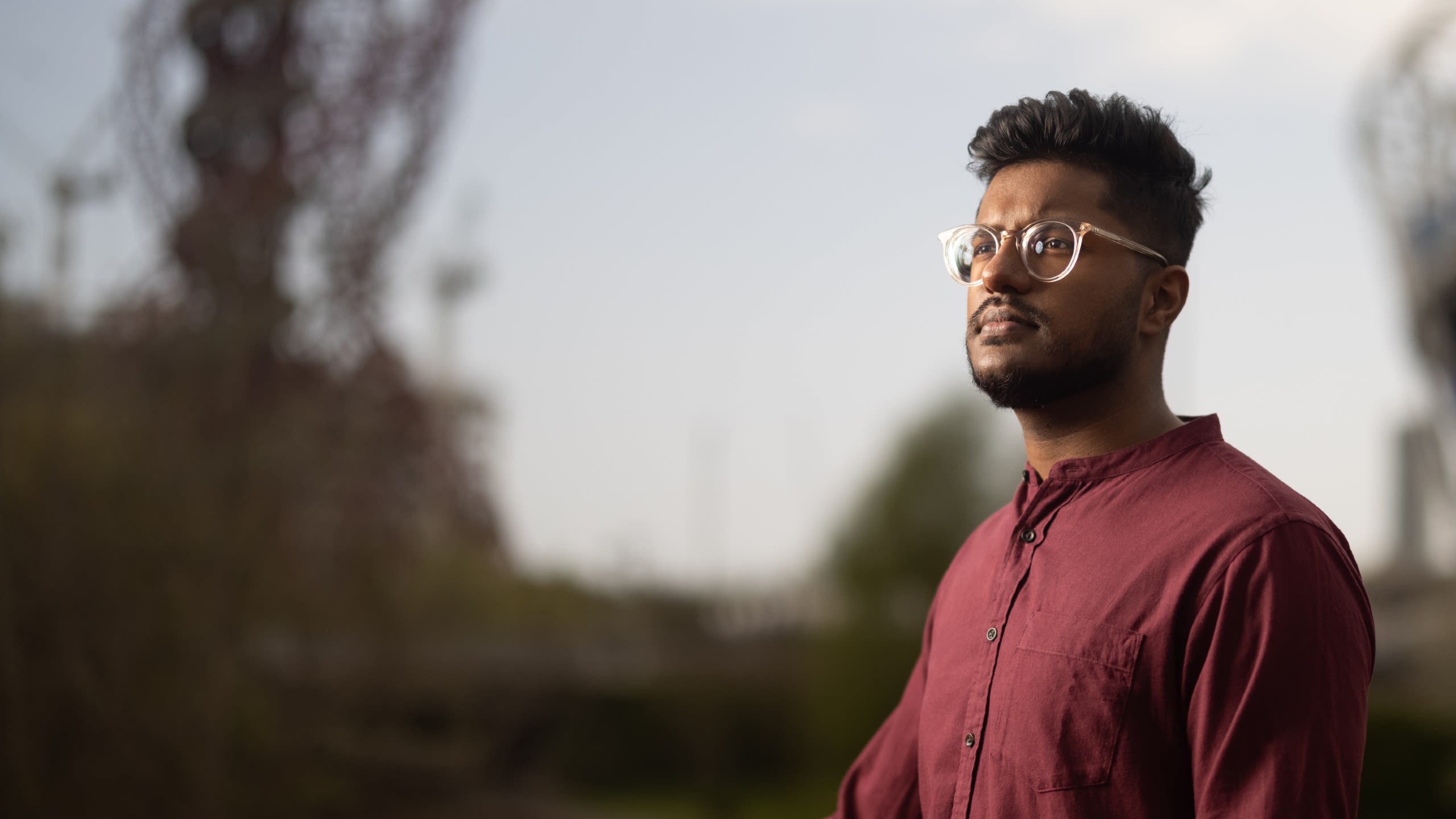
Rokshan shares his story as part of Shifting the Lens: a celebration of cultural diversity at Imperial.
This interview was edited by Andrew Youngson, and photographed by Jason Alden.
